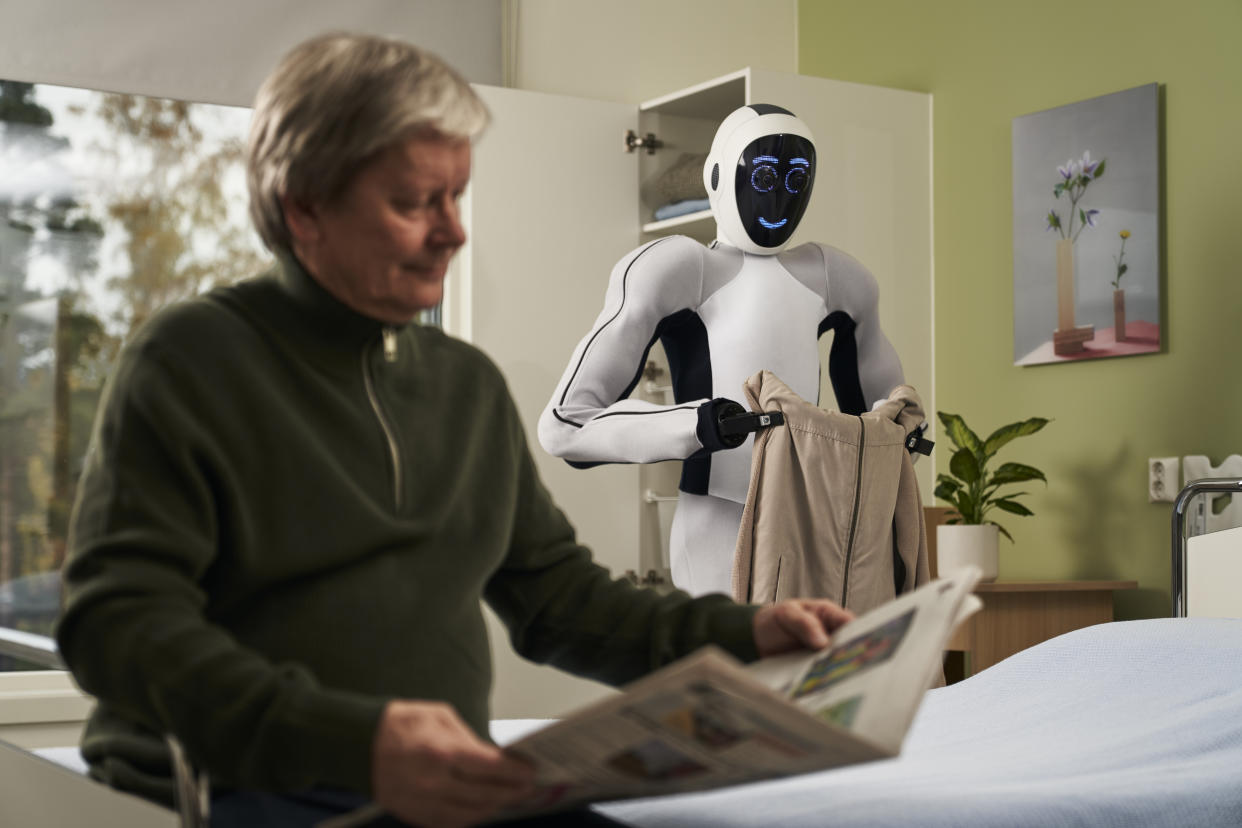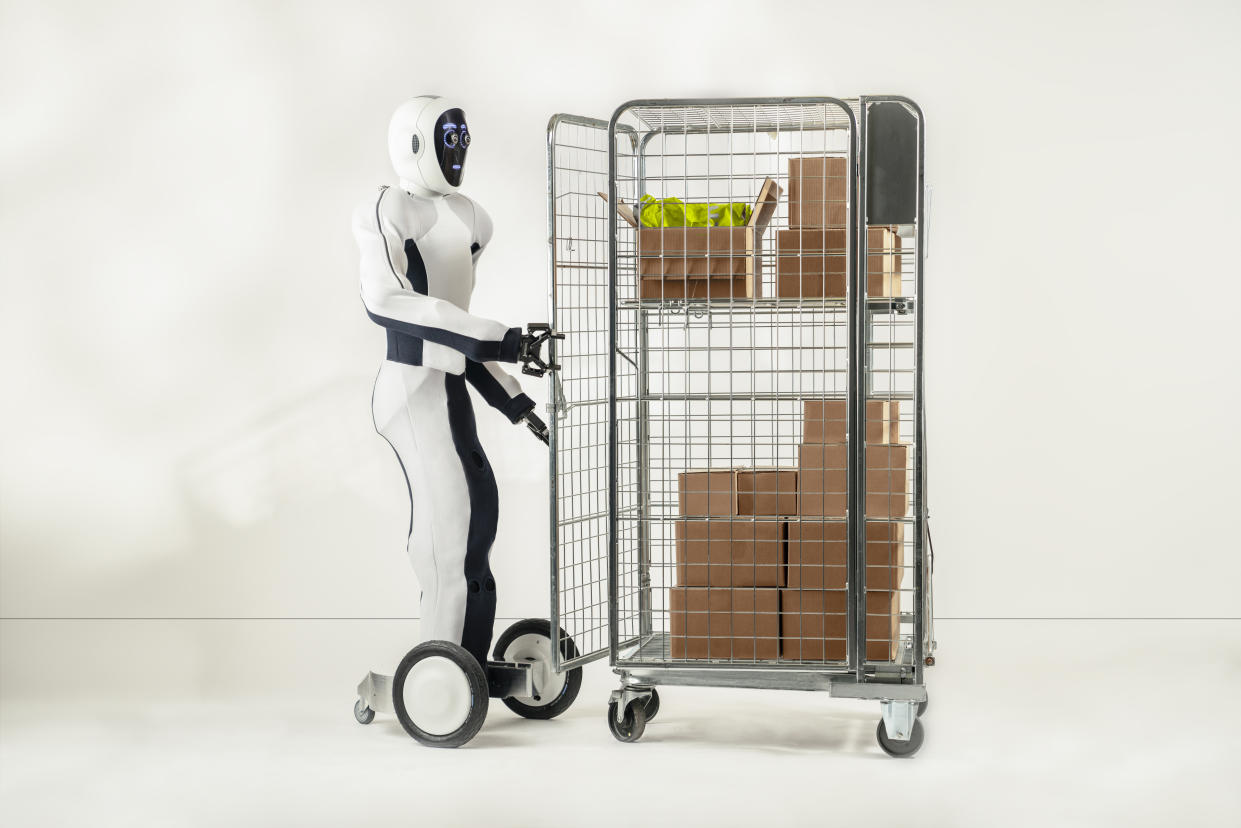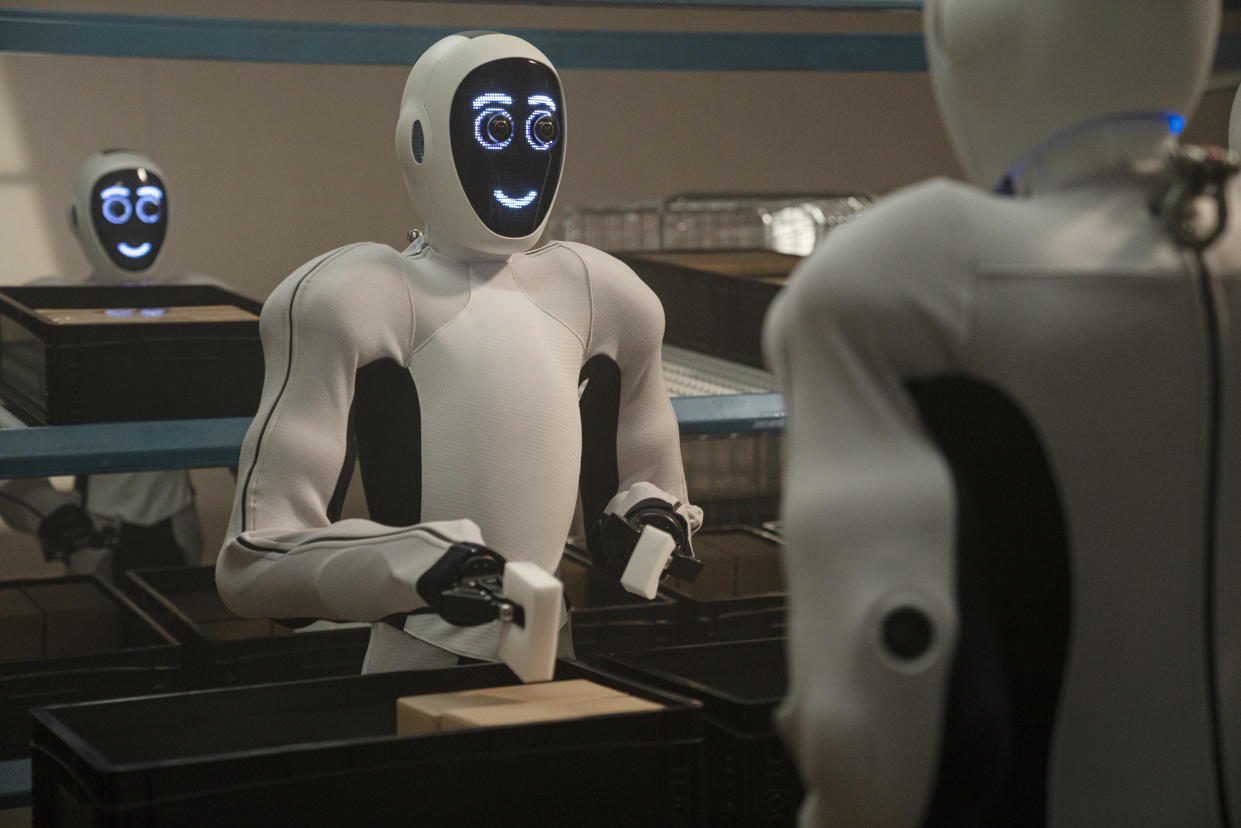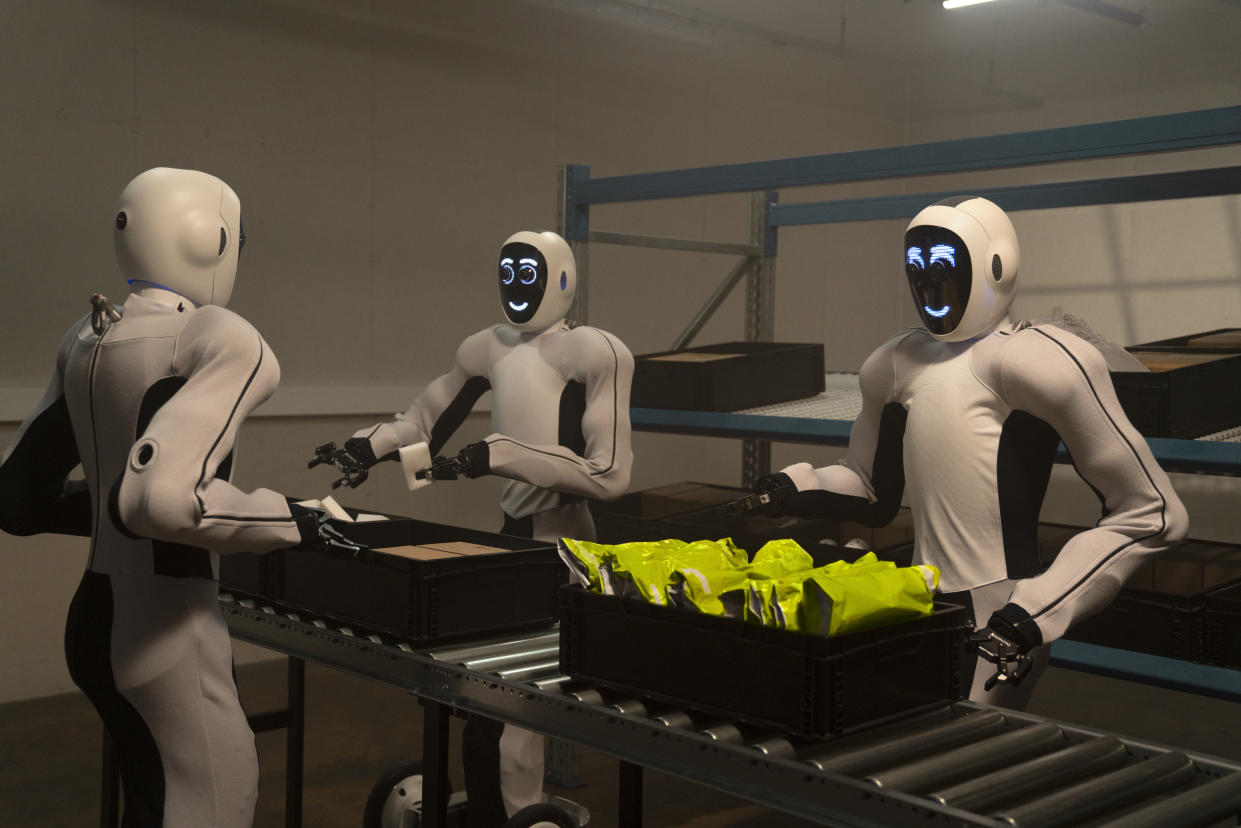Meet the ChatGPT robot that can do the dishes and even bake cakes

A robot that uses the technology behind ChatGPT to suggest recipes and even do the dishes is a vision of a future where robots carry out all of our chores.
The EVE Android, made by Norwegian company 1X, can look at shelves and concoct recipes based on what it 'sees', using a modified version of GPT-4, the software behind ChatGPT. GPT-4V allows the robot to take what it sees – the ingredients on a shelf, for example – as an input, and then 'think up' recipes.
Equipped with delicate 'hands' powered by rope-like muscles, videos of EVE show off the android flying paper aeroplanes and even pouring milk.
OpenAI, the company behind ChatGPT, invested in EVE via its Startup Fund, which led an investment round that funded 1X with $23.5m (£18.5m) to create robots that can do the jobs of human beings. The robot is now being tested in a kitchen in Norway, where it can do everything from washing dishes to baking Christmas cookies.
Are robots really working right now?
EVE is already 'working' in warehouses in the US as a security guard, piloted through virtual reality by human operatives but often wheeling through corridors under its own steam.


EVE is one of several humanoid robots in production, with analyst Goldman Sachs predicting that the market for such androids could be worth $150bn (£118bn) a year within 15 years. Elon Musk claims that Tesla's rival Optimus robot – another humanoid built to carry out any task – could in the long term be "more significant" than the company's cars.
What can EVE do?
Hege Nikolaisen, head of communications at 1X, said: "The androids can be used for monitoring, logistics, retail and/or warehouses. They can perform typical boring and repetitive tasks such as packing, sorting, moving, printing, cleaning or monitoring.
"We build androids for general use/task performance, which means that the capabilities it develops are never specifically linked to an industry/vertical. This creates a general task-performing platform that will increase access to labour in industries where they struggle to hire people, or want to protect people from dangerous environments."
In a warehouse, a security guard sitting at a control centre operates a fleet of EVE androids that autonomously patrol the building, notifying the guard when they 'see' something unusual. At that point, the guard can take full control of the android using virtual reality.
Other robots such as Sanctuary's Phoenix have been tested in shops, packing and folding goods – and are capable of roughly 40% of the jobs human workers do.
Why now?
Advancements in AI have been key to the arrival of such robots, but the biggest barrier preventing robots entering the workplace has been safety, Nikolaisen said. Previously, robots would have crushed their surroundings or people they were interacting with due to a combination of high speed and force.

Nikolaisen said: "The big barrier in robotics that 1X has managed to solve is creating technology and hardware that is safe enough to be taken out of the factory. We've all heard for years that robots will soon come to work for us, but it's never actually happened until now. This is because our androids use strong, but energy-efficient motors so that they can safely interact with their surroundings."
What will happen next?
1X hopes that robots will eventually be used to assist elderly people, for example, but Nikolaisen said that the company is taking a "slowly but surely" approach, allowing people to get used to the technology.
She said: "Within a couple of decades, we believe it will be possible to use androids as personal assistants."
Recommended reading
Google reveals new 'robot constitution' to try and stop robots from accidentally killing humans(The Independent)
AI researcher says '10-20%' chance AI will take over (Fortune)
AI to reach $1,345bn by 2030 (MarketsandMarkets)


